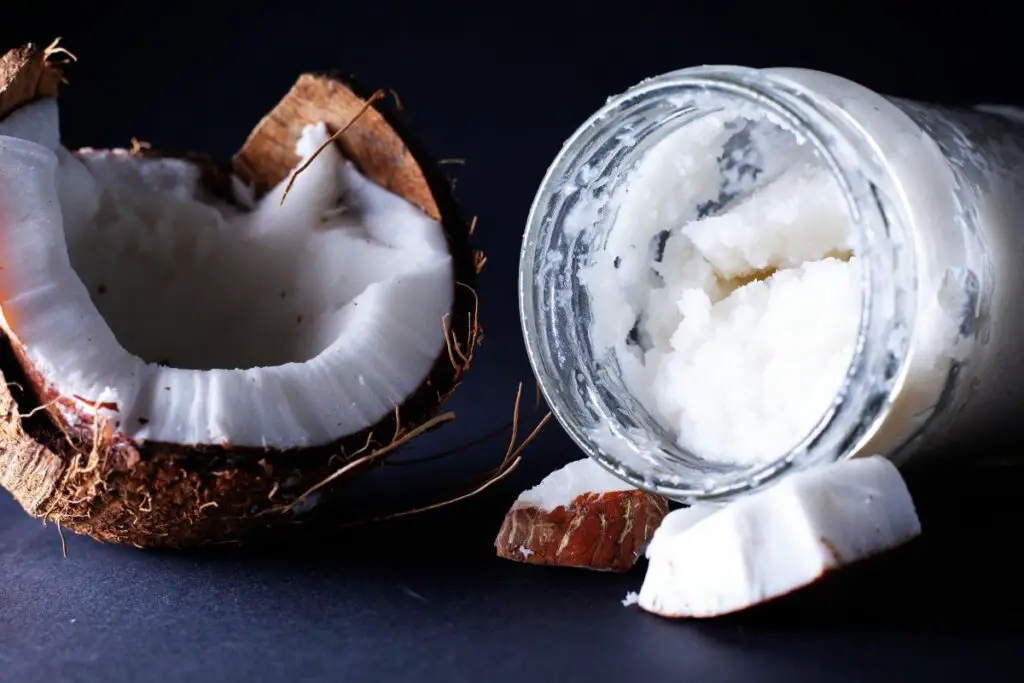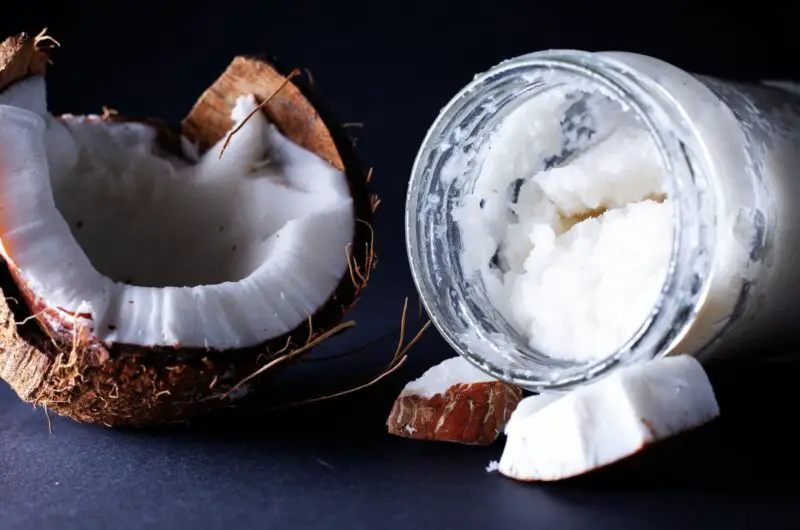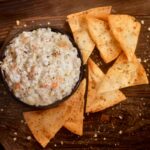In our opinion, coconuts are a bit of a ‘love it or hate it’ food. But if you’re anything like us, you just can’t get enough!
One of the greatest things about coconuts is their versatility. Whether you want to use it as a garnish, add it to your skincare routine, drink it, or add it to a dip – there are an abundance of uses that spread much further than the kitchen; especially if you’re using coconut butter.
But, what if you don’t have any to hand? Are there other foods out there that can perform the same wonders? You’ll be pleased to know that a few come pretty close!
Ready to learn more? Here’s a roundup of six of our favorite coconut butter substitutes, and how you can use them.

What Is Coconut Butter?
Coconut butter, sometimes known as creamed coconut, is a coconut product made from coconut.
Coconut butter is usually just made from shredded coconut, which is blended up until it turns into a butter-type consistency. You can make it yourself with just a blender and a coconut!
Unlike coconut oil, coconut butter also includes the flesh of the coconut, rather than just just the oil from the meat.
Coconut butter has a variety of purposes including being used for baked goods such as toast, muffins, or bread. It can even be added to hot beverages or smoothies, poured over fruit, used as a facial and lip treatment, or even shared with your dog!
In simple terms, coconut butter tastes like straight coconut. It’s a little intense (think of coconut but much stronger), but it’s a versatile ingredient to keep in your kitchen.
Is Coconut Butter Healthy?
Coconut butter is made from straight coconut, so it has just the same health benefits. Coconut butter is a healthy addition to any diet. Here are just a few of the benefits of coconut butter:
- Rich in lauric acid, which can boost immunity and eliminate bad bacteria and viruses
- Can boost your metabolism, and assist with weight loss and increased energy levels
- Contains plenty of healthy fats which can help keep you fuller for longer
- Full of amino acids, magnesium, and calcium
- Acts as a natural moisturizer for the skin
- Can protect the scalp and help prevent dandruff and dry scalp
1. Greek Yogurt
First up, we have greek yogurt. This may not have been the first food that springs to mind, but yes, greek yogurt can be an effective substitute for coconut butter!
Greek yogurt may not be able to mimic the taste of coconut (let’s be honest, few foods can!), but it does have the same texture as coconut butter. It’s thick, creamy, and has a mild yet tart flavor that pairs well with a variety of both sweet and savory foods.
If you need an alternative to coconut butter that can be added to dips, spreads, and even sauces, greek yogurt is one you can’t go wrong with.
2. Applesauce
Next up, we have applesauce. Applesauce is a type of puree made from apples, either peeled or unpeeled, and it can be either spicy or sweetened depending on the variety. It’s often poured with rich meats, and it’s simply delicious!
A spoonful of apple sauce will often taste slightly sweet and tart. Although it tastes pretty close to apple, it can be a little tarter.
As a substitute for coconut butter, applesauce works best in small quantities. It has a similar texture and can be a great ingredient to help bind others togeth
r. Because it’s naturally sweet, it can also help you cut down on the amount of sugar you need in your recipes.
3. Almond Butter
If you don’t have either of these to hand, you could also try almond butter. Almond butter is a type of paste made from grinding almonds into a smooth and creamy nut butter. It can be either crunchy or smooth depending on your preferences.
Almond butter is a great substitute for coconut butter. It has a similar texture and a pretty delicate flavor which adds both a sweet and savory element to your dishes.
It also contains plenty of protein, healthy fats, and fibre, while containing less sugar than coconut butter. What’s not to love!?
If you want a versatile (and healthier) alternative to coconut butter, we’d recommend almond butter.
4. Peanut Butter
If you’re not a fan of almond butter, you can try this equally tasty and versatile alternative – peanut butter. It’s one of the most popular foods in the whole world, and it’s a pretty great substitute for coconut butter, too!
Peanut butter is made from ground and roasted peanuts. Some peanut butter may also contain additives like oil, sugar, and salt to prevent separation.
Peanut butter has plenty of uses, from a spread on bread or toast to a baking ingredient, smoothie additive, and much more. It can even be eaten on its own!
Peanut butter tastes exactly like peanuts. It’s predominantly savory, but can be a little sweet, too. It’s also high in protein and contains plenty of vitamins and minerals.
Although coconut butter contains similar levels of fats and proteins, it lacks some of the vitamins and minerals found in natural peanut butter.
Peanut butter has a similar texture to coconut butter; so, if you’re looking for a versatile (but more savory) alternative to the real deal, peanut butter can be a great choice.
5. Mashed Bananas
Next up, we have mashed bananas. If you don’t mind an alternative with a slightly different texture, mashed bananas can be a great choice.
Mashed bananas have a slightly more delicate flavor than coconut, and all you need to do to create them is mash up your banana with a fork or blender and throw them into your recipe.
Mashed bananas have less fat and fewer calories than coconut butter, too, making them a healthier option for your recipes.
If you’re cooking up something that requires a delicate flavor, you can use mashed bananas as an alternative to coconut butter!
6. Cashew Butter
Cashew butter is a type of spread made from baked or roasted cashews. Cashew butter has a rich, creamy flavor that’s mostly nutty, with a slight hint of sweetness.
If you want something similar to (but creamier than) almond butter and peanut butter, cashew butter is a great option.
Cashew butter also has a more neutral flavor than almond and peanut butter, which can make it a great addition to both sweet and savory dishes.
It also contains plenty of essential amino acids, magnesium, and monosaturated fatty acids, making it a healthy option for your dishes.
If you want a similar consistency and a neutral flavor, cashew butter is a great choice!
Final Thoughts
There’s nothing quite like coconut butter. It’s creamy, flavorsome, and truly unique. However, if you haven’t got any to hand, these delicious alternatives can help you mimic the texture, and some elements of the flavor profile, to elevate your dishes.
Plus, some of these alternatives are even healthier than coconut butter – what’s not to love!?
Coconut Butter Substitutes: The 6 Alternatives You Need to Know
Course: Substitutes4
servings30
minutes40
minutes300
kcalIngredients
Greek Yogurt
Applesauce
Almond Butter
Peanut Butter
Mashed Bananas
Cashew Butter
Directions
- Decide on what substitute you need
- Pick a substitute from the list above
- Read what you need to substitute with
- Create the recipe and enjoy
Recipe Video
https://www.youtube.com/watch?v=kdOFK-vompkVideo can’t be loaded because JavaScript is disabled: Easy Homemade Cashew Butter – How to Make Cashew Butter (https://www.youtube.com/watch?v=kdOFK-vompk)- What Exactly Do Chickpeas Taste Like? Is There A Distinct Flavor? - September 30, 2023
- Top 11 Low Carb Options at Sonic Drive-In for Keto Diet - September 30, 2023
- What Should You Serve Alongside Potato Salad? 8 Incredible Side Dishes - September 30, 2023











